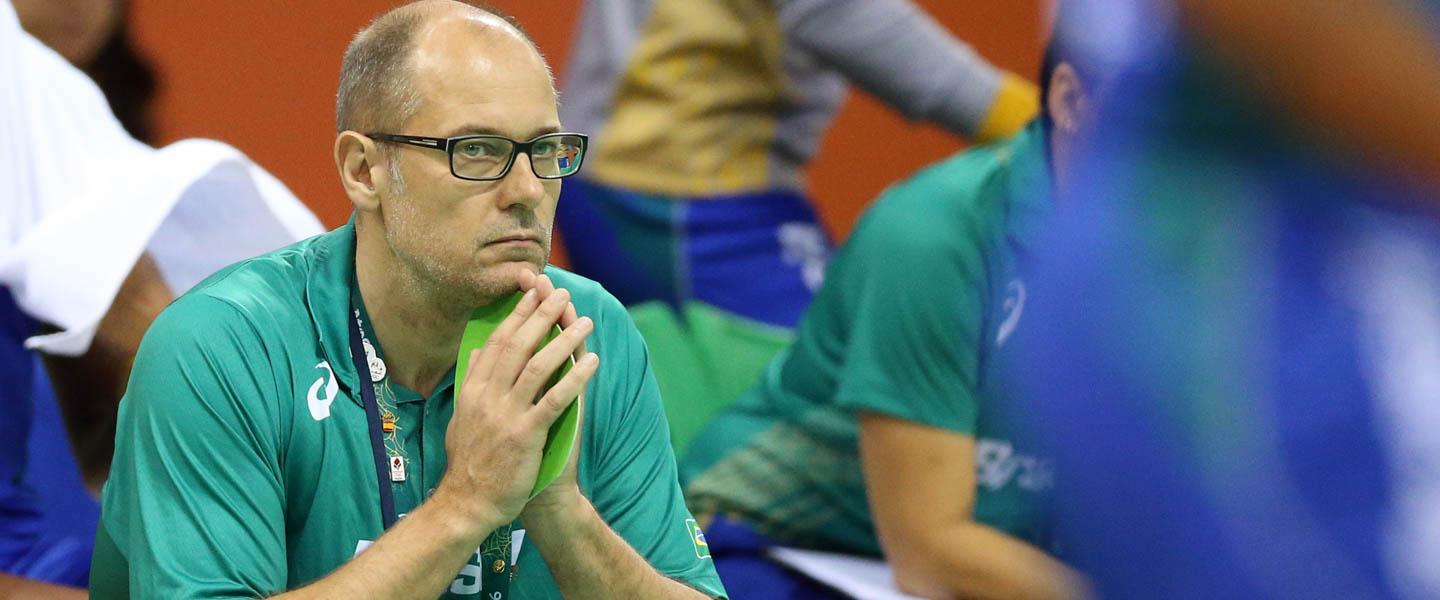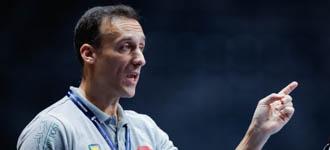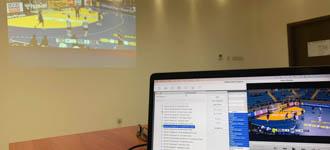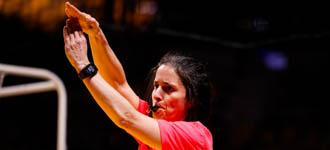The handball globetrotter: Soubak ticks fourth continent to coach in at Poland/Sweden 2023
15 Jan. 2023

Denmark, Brazil, Angola, Romania and Saudi Arabia. It is not just a random list of countries or a list put together by somebody who threw a dart at the world map and decided which country to visit.
These are the countries Morten Soubak has coached throughout his career with unprecedented success. He was the coach of the first non-European team, Brazil, to win the World Championship in men’s and women’s competitions. He was also the coach who lifted the first IHF Women’s Super Globe with Angola’s Primeiro de Agosto.
And now he is Jan Pytlick’s assistant for the Saudi Arabia men’s senior national team at the 28th IHF Men’s World Championship, embracing a new culture, learning about the basics of handball in Asia and trying to improve and streamline the basics in the Gulf state.
“When Jan called me and asked me to be his assistant for Saudi Arabia, I never hesitated. I have always loved a challenge and this was another one presented to me that I could resonate with. I said yes, and here I am, at another World Championship edition,” says Soubak.
In a career spanning more than three decades, Soubak has now coached on four different continents – Europe, South America, Africa and Asia – and has seen almost everything there is to see in handball. Few coaches can boast this type of experience, and Soubak is grateful and humbled to have felt so much throughout his career.
But how did it all start?
“Do you have time? We’ll probably be talking until the end of the World Championship,” says the 58-year-old Danish coach.
“Like every good story, it all starts in childhood. It may have nothing to do with handball, but it had a huge meaning for me. I fell in love with Brazil early, I loved football when I was a kid and my father told me so much about Pelé. Back then, in the early 1970s, there were not too many matches broadcast on TV. But the stories I heard were amazing.”
“I wrote one of my first essays in school on Pelé and Brazilian football and fell in love with their culture. I even got to meet the man in Copenhagen in 2009, when Brazil were presenting their bid for Rio 2016,” adds Soubak.
That love of Brazil made him learn the Portuguese language and eventually move to the country in 2007, taking the coaching role at EC Pinheiros, one of the powerhouses in Brazilian men’s handball.
Two years later, he went on to take over the Brazil women’s national team, which he coached for seven years, between 2009 and 2016, engineering the best-ever period for the team, who finished fifth at the 2011 IHF Men’s World Championship, sixth at the London 2012 Olympic Games and eventually went on to win the world title at Serbia 2013.
“Those are exceptional memories. When I was a kid and dreaming about Brazil, I would never have thought that I was going to bring the world title there. It was something out of a fairytale, something like a book, an amazing feature with an excellent team. We had something going for us since I took over in 2009 because we played well in 2011 and 2012. With eight players at Hypo Viena, the core of the team was formed and everybody gave it their all. They were like a family,” says Soubak.
Then, after Rio 2016, Soubak stepped down, with Brazil clinching their best-ever result at the Olympic Games and finishing in fifth place, and took over another big challenge by accepting to coach in Angola.
It was another continent, a totally different culture, with talented but inexperienced handball players that needed some proper guidance. However, Soubak did not repeat the same excellent performances as in Brazil’s case, finishing 19th at Germany 2017 and 15th at Japan 2019.
“The difference between European handball and the handball from other continents is that in Europe you have a proper system to develop talent and you also have some great leagues where players can improve. Teams like Angola and Brazil miss that in their domestic competitions. You do not have 14 or 18 teams like in Europe that can battle for trophies. But there is a lot of help now and things are improving,” says Soubak.
“But make no mistake, there are hugely talented players who have excellent innate qualities. They only need to be polished and gain the needed experience to thrive in any system. The talent is there, believe me,” adds the Danish coach.
Soubak ended his stint in Angola in 2021 and after some months at HC Dunărea Brăila in the Romanian women’s league, the Danish coach got the call from Pytlick and embarked on a totally new experience with the Saudi Arabia men’s team, being back in men’s handball after over a decade.
A new challenge? He took it with both hands, as he has done with every other one throughout his career. But this one has its pitfalls.
“This is the first time that I do not speak the language. I am not fluent in Arabic, so we need to speak in English with the players, but they do speak English, so it is not that hard.”
“We are trying to develop handball here and the players have qualities, but this is a long-term project, not necessarily a short-term one. For example, we lost so heavily against Slovenia and France because we made a lot of mistakes. This is a thing we need to work on, taking care of the ball and not giving the opponents the chance to thrive on fast breaks,” adds Soubak.
When Pytlick and Soubak took over, they knew that their chances were limited in a group with three European powerhouses – reigning Olympic champions France, co-hosts Poland and Slovenia – which are all trying to secure the best possible finish at Poland/Sweden 2023.
While the Asian side might have lost against Slovenia (19:33) and France (21:43) and will be underdogs against Poland, the team is still a work in progress. But with plenty of experience, Pytlick and Soubak can turn things around.
Look no further than the 2022 IHF Men’s Super Globe, where Saudi club side Khaleej won a match against EHF European League winners SL Benfica. Or, like Soubak said, the talent is there; it just needs to be nurtured.






